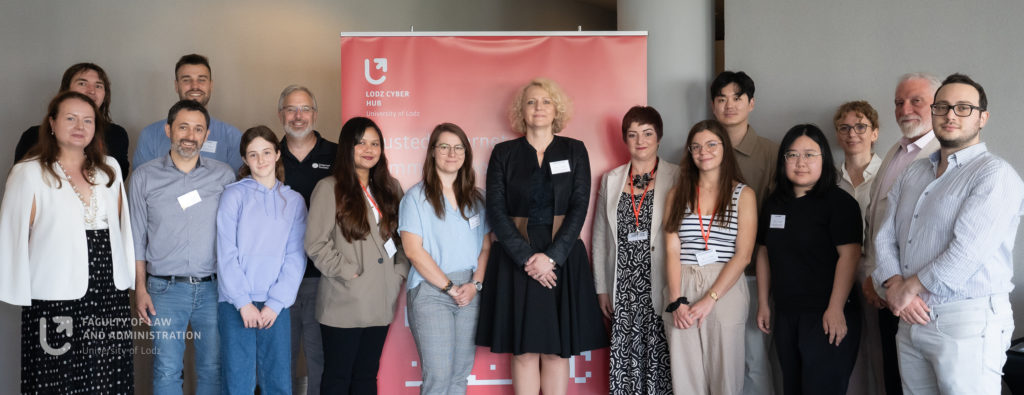GigaNet – the Global Internet Governance Academic Network – is now accepting extended abstracts for papers to be presented at its annual symposium. As of now, GigaNet 2023 is planned to be held alongside the United Nations Internet Governance Forum (IGF) in a hybrid format in Japan.
Papers on any internet/digital governance-related topic are welcome. Multidisciplinary and interdisciplinary approaches are warmly encouraged. There will be the possibility for a focused subset of accepted papers to be fast-tracked for publication in a relevant journal. In previous years, collections of papers presented at the symposium were invited for publication in the journal Telecommunications Policy.
We particularly welcome presentations of research that take a global perspective, and explicitly invite comparative papers. GigaNet encourages emerging scholars and researchers working with diverse methodologies to submit their work to the symposium. Proposals should be submitted in English. Participation in the GigaNet symposium is free of charge.
Welcome topics for this year’s symposium include, but are not limited to:
Internet Governance as a field of study
– Narratives, myths, contributing disciplines, and frictions in the construction of the field of internet governance
– Internet governance cultures and power dynamics
– Theoretical innovations and new methods applicable to internet governance research
– Postcolonial internet governance studies
The evolution of internet governance, institutions, and norms
– Internet standards and protocols
– Internet infrastructure
– Platform governance
– Cybersecurity
– Governance of data streams
– Digital rights online
– Digital sovereignty
Critical internet futures
– Sustainability and environmental impacts
– Digital colonialism
– Transformation of internet business models
– Space and internet governance
– Interdisciplinary perspectives on the governance of frontier technologies (Internet of Things, Artificial Intelligence, virtual currencies, metaverse, quantum computing), etc.
Current themes in internet governance research
– Online harms, cyberattacks and accountability
– Connectivity and access to information
– Cyber operations and sanctions
– Neutrality in the cyber domain
– Applicability of international law
– Role of international bodies and/or public-private partnerships
– Corporate responsibility and connectivity
– Health governance & contact-tracing apps
– Civil rights and their limitations
– Internet governance and emergency preparedness
– Global cooperation and geopolitical tensions
– Splinternet and control of the networks
GigaNet is oriented around the presentation of research papers. The proposed extended abstract should be 800-1000 words long (excluding bibliography) and must describe:
1. Research question(s),
2. Data used,
3. Methodology,
4. Main (expected) findings of the paper, and
5. Contributions to literature and/or ongoing policy debates.
Theoretical papers need not specify the data used but must have a clear research question and statement of the specific theories used and literature in which the analysis is situated.
The extended abstract must be uploaded to the submission platform by 30 April 2023, 23.59h (in the submitter’s timezone). Further information on the submission process will be available from the giga-net.org website in mid-April.
Individual abstracts will be reviewed double blind. Please do not include names or any other identifiable information on the uploaded file or in the text of the abstract you submit to the platform. (The platform records the author name(s) and contact information: the programme committee chair will be able to see that information.) Full papers should only be submitted upon invitation, following the selection of abstracts.
Important notices:
Submission portal: http://symposium.giga-net.org/
Extended abstracts submission: 30 April Due to popular request, the deadline for abstracts has been extended until 10 May.
Notification to authors of acceptances/rejections: 15 June
Accepted authors confirm attendance: 25 June
Full papers due: 5 September
GigaNet Symposium: early October (tentatively planned for 8 October)
—
GigaNet is an international association of academic researchers founded in 2006 to support multidisciplinary research on internet governance. Its membership includes researchers from all over the world who are contributing to local, national, regional, and international debates on internet governance. More information on GigaNet’s organizational structures and activities can be found on its website at https://www.giga-net.org.
Members of the Programme Committee 2023-2025 are:
- Jamal Shahin (Chair)
- Yong Liu
- Berna Akcali Gur
- Corinne Cath
- Dan Oppermann
- Giovanni De Gregorio
- Dmitry Epstein
- Edison Tabra
- Jat Sing
- Julia Pohle
- Niels ten Oever
- Matthias Kettemann
- Mauro Santaniello
- Nadia Tjahja
- Nanette Levinson
- Patricia Adriana Vargas Leon
- Raquel Gatto
- Michele Rioux
- Riccardo Nanni
- Robert Gorwa
- Roxana Radu
- Sebastian Felix Schwemer
- Jun Liu
- Trust Matsilele
- Wu Fei
- Yik Chan Chin

